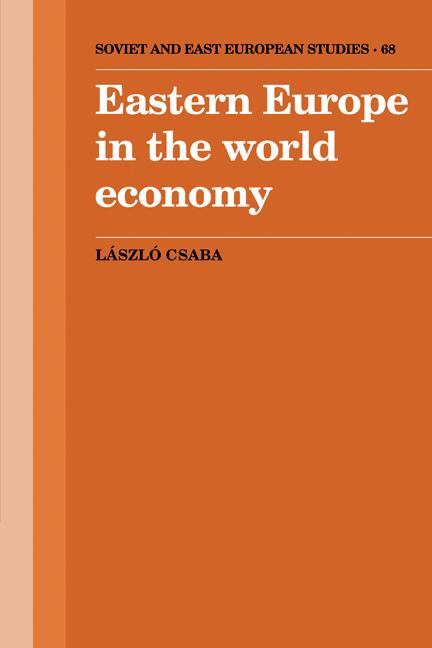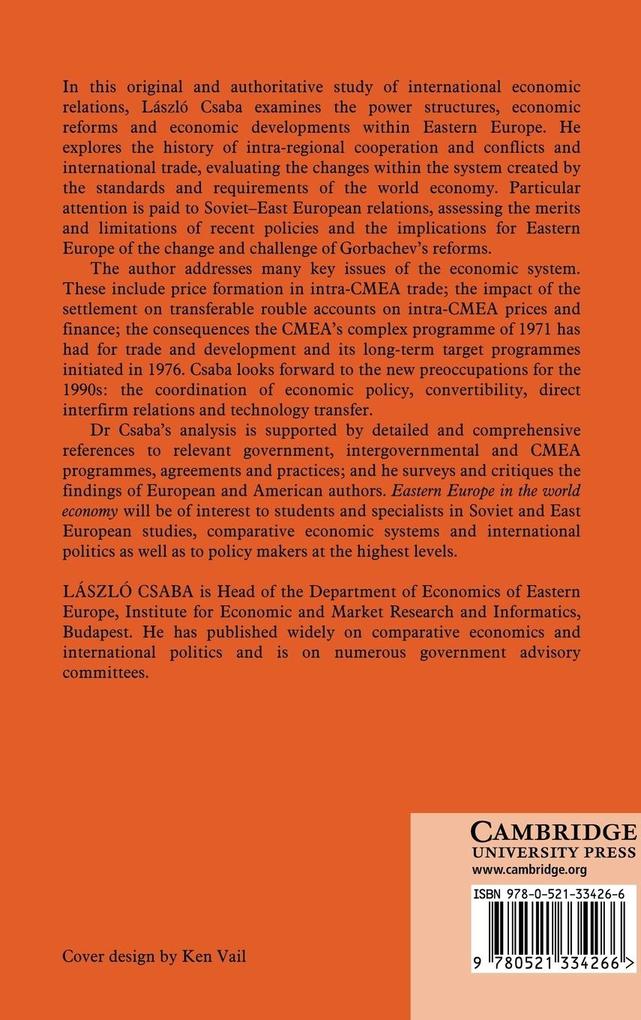
Zustellung: Fr, 11.07. - Di, 15.07.
Versand in 7 Tagen
VersandkostenfreiBestellen & in Filiale abholen:
In this original and authoritative study of international economic relations, Lá szló Csaba examines economic reforms and economic developments within Eastern Europe. He explores intra-regional cooperation and international trade, evaluating the changes within the system created by the standards and requirements of the world economy, and pays particular attention to Soviet-East European relations. The author addresses many key issues of the economic system. These include price formation in intra-CMEA trade; the impact of the settlement on transferable ruble accounts on intra-CMEA prices and finance; the consequences the CMEA's complex program of 1971 has had for trade and development and its long term target programs initiated in 1976. This analysis is supported by detailed and comprehensive references to relevant government, intergovernmental and CMEA programs, agreements and practices. Eastern Europe in the World Economy will be of interest to students and specialists in Soviet and East European studies, comparative economic systems and international politics as well as to policy makers at the highest levels.
Inhaltsverzeichnis
Foreword to the Hungarian edition and acknowledgements; Foreword to the English edition; Introduction; 1. The CMEA's monetary system and the epochal transformation of the world economy; 2. A contribution to the theory of prices in a demonetized environment; 3. Joint investments and mutual advantages in the CMEA - retrospectation and prognosis; 4. Planning, enterprises and trade with the West; 5. The CMEA in a changing world; 6. The strategic options of integrational policies; 7. Economic policy and planning in the CMEA; 8. Conditions for Eastern Europe's adjustment to the world economy in the 1980s; 9. Perestroika: the restructuring of the Soviet economy; 10. The CMEA under restructuring; 11. Hungary in the COMECON; Appendix; Bibliography; Index.
Produktdetails
Erscheinungsdatum
19. Mai 2011
Sprache
englisch
Seitenanzahl
408
Autor/Autorin
Laszlo Csaba
Verlag/Hersteller
Produktart
gebunden
Gewicht
810 g
Größe (L/B/H)
235/157/28 mm
ISBN
9780521334266
Entdecken Sie mehr
Bewertungen
0 Bewertungen
Es wurden noch keine Bewertungen abgegeben. Schreiben Sie die erste Bewertung zu "Eastern Europe in the World Economy" und helfen Sie damit anderen bei der Kaufentscheidung.










